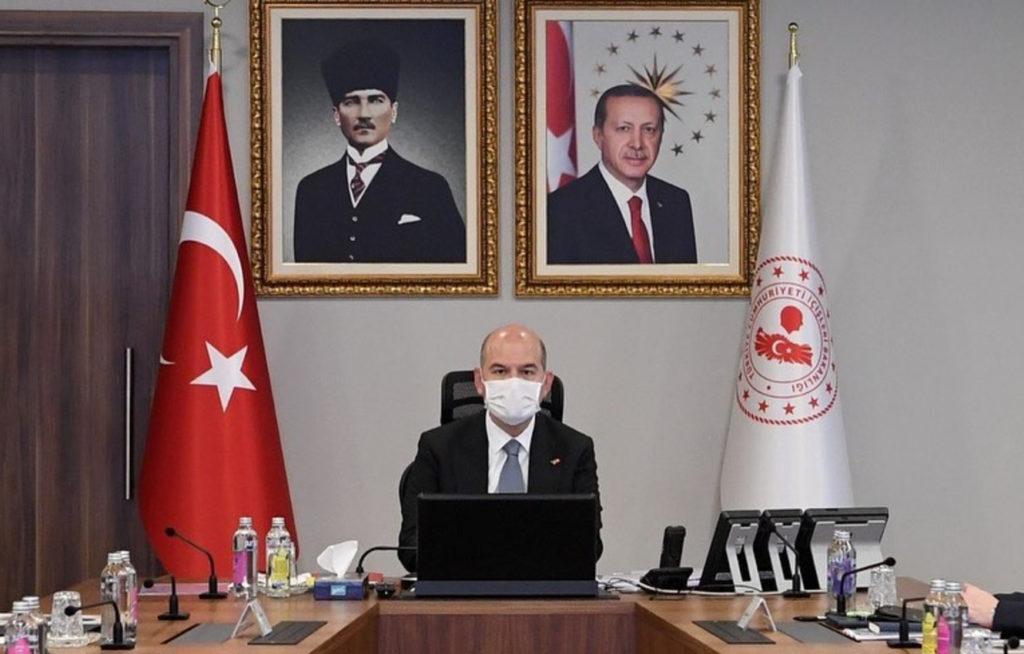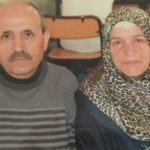There was a moment a decade ago when it appeared that the mafia’s influence over Turkish politics had ended. Since the 1970s, individuals from Turkey’s underworld had been the focus of a series of scandals that rocked the country’s political establishment. But by 2009 a number of renowned godfathers were either on trial or already serving long prison terms. Then-Prime Minister Recep Tayyip Erdoğan declared that his government’s “clean hands” policies would pull the country out of the dark pits of corruption in which it had been mired. Amid this optimism, some remained cautious. “These [criminal] structures are currently asleep,” one retired police official declared in 2011. “However, they can become active again if they find a suitable political environment.”
An absurd series of events over the last three weeks makes this warning appear prophetic. A notorious crime boss named Sedat Peker has released a series of YouTube videos from Dubai levying lurid and detailed accusations against the Turkish government. He’s accused one member of parliament, the son of a notorious interior minister, of rape and murder. He’s accused the son of Erdoğan’s former prime minister of attempting to smuggle five tons of cocaine into Turkey. And, to explain why these men have never been charged, he has accused Erdoğan’s powerful interior minister, Süleyman Soylu, of protecting them. Though Peker offers no proof for these claims, Soylu and others mentioned in his broadcasts have scrambled to respond. Erdoğan has continued to back his interior minister but has refused to address Peker’s specific charges.
Not surprisingly, Peker’s videos have captured the attention of journalists in both Turkey and abroad. Reporters have been quick to find in them proof that gangsters still hold the reins of power in Turkey and that Erdoğan, like his predecessors, is complicit. Some have gone further, suggesting that Peker’s revelations confirm that gangsters are engrained elements of the Turkish state itself. But as true as all these conclusions might be, they underscore an even deeper continuity — in the taboos and censorship surrounding discussing or investigating organized crime in Turkey. Whatever the alignment of interests between gangsters and the Erdoğan government are, both parties are eager for them to remain less than transparent. Turkey, unfortunately, has been here many times before. While some commentators hope that Peker’s revelations may finally spell Erdoğan’s political demise, he has muddled through past corruption scandals. He may do so again.
Sedat Peker and the Return of the Mafia State
In retrospect, it should surprise no one that Sedat Peker is now the source of so much controversy. Though raised in Germany, he has been the focus of public fascination in Turkey since the late 1990s. Peker is among the last of a generation of prominent kabadayı, a historic class of “toughs-for-hire” known for extortion, racketeering and other strongarm services. Unlike drug traffickers, who are less regularly the subject of media attention, the Turkish press tend to romanticize the likes of Peker and others in the kabadayı trade. Though indicted for acts of criminal coercion in 1998 and 2005, Peker has managed to avoid prosecution in a host of other cases, such acts as fixing soccer matches in Turkey and lending support to a motorcycle gang in Germany. From the start, Peker has embraced his notoriety. He has been photographed regularly in the company of celebrities and has rarely shied from giving interviews. Before his recent spate of YouTube videos, Peker was active on Facebook, publishing speeches and interacting with supporters.
More than anything, Sedat Peker is a political animal. Since his youth, he has been an active participant in ultra-nationalist causes. To this day, he remains a folk hero among far-right groups such as the Nationalist Movement Party, which joined Erdoğan’s administration in 2018 as a junior coalition member. Above all, Peker has never made a secret of his willingness to act as an informant for both the police and the press. He has declared in print and on the witness stand that he has long maintained strong ties to law enforcement and has served as an informant and triggerman in the state’s efforts to combat Kurdish militants and other threats to national security. During the 2008 Ergenekon trials, this briefly put him on the wrong side of the Erdoğan government. But his conviction only briefly halted his time in the spotlight. The government’s decision to vacate the Ergenekon verdicts led to his release from prison in 2014. Thereafter he reestablished himself as a supporter and campaign surrogate for Erdoğan’s Justice and Development Party. Photos soon circulated of Peker warmly greeting Turkey’s president at an Istanbul wedding. In 2015, he declared to a crowd of thousands to stand prepared to “bathe in the blood” of those who had signed a petition calling for peace in Kurdish portions of the country. Since then, Peker has escaped legal accountability for this and other acts of incitement against government opponents. The implications of the court’s inaction appeared clear. Sedat Peker was being protected from on high.
His life, however, took an odd series of turns since 2020. Early that year he posted a message on Instagram saying that he had left Turkey and was resettling in the Balkans — supposedly with an eye to pursuing an undergraduate degree. Rumors immediately swirled that he had to flee the country to escape the vengeance of a long-time rival from the Turkish underworld. Instead, Peker revealed that Erdoğan’s son-in-law, then-Minister of Finance Berat Albayrak was “working to destroy him.” Events came to a head in April 2021 when investigators conducted a series of raids in five districts across the country, targeting Peker’s home and arresting 49 of his accused associates. Initial reports claimed that he and others were being investigated for a host of crimes, such as kidnapping, extortion, bribery, and causing bodily harm. But it remains unclear if Turkish authorities have subsequently issued an international arrest warrant. The abuse his family suffered at the hands of investigating agents, Peker claimed, is among the reasons why he has chosen to post his now infamous video series.
The accusations Peker is making against public officials and other high-profile figures are numerous and often outrageous. In addition to detailing a supposed feud between Soylu and Albayrak, he accuses the current interior minister of covering up cases of drug trafficking, rape, murder and extortion. Among other murders, Peker claims former officials orchestrated the killings of journalists in the 1990s for investigating government wrongdoing. With millions of Turks now glued to Peker’s social media posts, many of those implicated in his videos have issued flailing responses. Binali Yıldırım, Erdoğan’s former prime minister, confirmed Peker’s assertion that his son had conducted business in Venezuela. But the business was COVID-19 aid, he insisted, not cocaine. Meanwhile Süleyman Soylu appeared for hours on a popular talk show, arguing that Peker’s videos constitute a grand plot against the country. A passive set of five journalists quietly listened as the minister cast blame on a host of potential conspirators, such as opposition party members and the BBC. Erdoğan, for the most part, has remained relatively mute through the scandal. “Like terrorist organizations,” he has cryptically declared, “Criminal gangs are a poisonous snake. If you enter the same sack with them, you will consent to what will happen to you later.”
What Don’t We Know and How Don’t We Know It?
This is hardly the first high-profile, highly political mafia scandal in Turkey. There are any number of cases over the last several decades where international affairs, Turkish politics, and organized crime overlap. Among the earliest was the 1972 arrest of Kudret Bayhan, a Nationalist Action Party senator apprehended while smuggling 146 kilos of morphine into France. Bayhan’s prosecution, many observed, highlighted Turkey’s role in the “French Connection” heroin trade between Europe and the Americas. There was also the case of Mehmet Ali Ağca, the would-be assassin of Pope John Paul II. While some enquiries linked him to a possible Warsaw Block conspiracy, journalists and U.S. investigators argued Ağca’s motivations were rooted in his history in the Grey Wolves, a violent ultra-nationalist organization known for its ties to both prominent Turkish politicians as well as international drug traffickers. For Turks, it is the 1996 Susurluk scandal that best crystalizes the country’s troubled relationship with organized crime. Susurluk’s chief revelation, that the government had harbored known heroin traffickers and employed them as assassins, epitomized a decade marred by violence and corruption in Turkish politics.
But tracing the history of organized crime, and its relationship to the Turkish state, is daunting. Access to the relevant archives, such as the interior ministry’s records, remains restricted. Among the few resources available to contemporary researchers are the papers of diplomats and law enforcement officials found in the National Archive in Washington. As I detail in my book, American agents assigned to assist Turkish police officers and gendarmes often discovered murky ties between state officials and gangsters. As early as the 1930s, American counter-narcotics officers encountered instances when state police and officials gave sanctuary to major heroin traffickers. By the fifties and sixties, agents uncovered evidence that suggested that parliamentarians and cabinet members actively protected or participated in drug trafficking. By the 1970s, generals privately confided to U.S. diplomats that past government officials were “involved [in] opium trafficking as major violators.” American officials, however, never went public with this information. For much of the 20th century, Turkish politicians and journalists were equally as reticent in revealing the names of prominent drug traffickers. None of Turkey’s original drug kingpins, such as İhsan Sekban and Hüseyin Eminoğlu, were ever indicted on trafficking charges. And only rarely did their names appear in newspapers.
Apart from a limited set of parliamentary hearings into the Susurluk scandal, no public inquest dealing with the nature of state-mafia relations has ever occurred. Journalistic accounts of how gangsters influence politics abound but vary in quality and scope. Relatively few offer verifiable sources. Most, instead, traffic in strains of gossip. Several journalists known to have taken the greatest risks in probing the role of the mafia in politics, such as Abdi Ipekci and Uğur Mumcu, were assassinated. Both of their cases remain unsolved.
A Murky Future?
When Erdoğan himself faced corruption accusations before, he succeeded in making sure they remained just as opaque. In December 2013, Erdoğan’s government was thrown into chaos when investigators indicted the sons of several prominent ministers for graft and helping Iran evade sanctions. An anonymous source subsequently posted wiretapped phone recordings of Erdoğan ordering his sons to hide money. Erdoğan, however, survived in part by purging the investigators and casting the scandal as a conspiracy masterminded by Fetullah Gülen and a host of international actors. Now, Erdoğan’s allies in the Turkish media are construing Peker’s videos as a continuation of this plot. Meanwhile, there are signs that large numbers of Turkish voters are not even paying attention. According to one poll, more than half of Justice and Development Party voters were unaware of the existence of the videos. Perhaps Erdoğan will dodge another bullet.
For now, Peker continues to promise new videos, and Turkey’s commentariat continues to churn out analysis of the scandal’s significance. His revelations have been a godsend for the country’s opposition press, with multiple outlets devoting their full attention to the story’s various twists and turns. A recurring theme in popular discussions is the issue of continuity. For some, the question is just how different Erdoğan’s mafia state is from past corrupt governments. Journalist and politician Ahmet Şık, who has called for a parliamentary investigation into Peker’s accusations, has suggested that the videos are proof that there is “no change in the dark, bloody and dirty hierarchy” governing the country. Others suggest that Turkey, under Erdoğan, has crossed into a new frontier as a de facto narco-state akin to Nicolas Maduro’s Venezuela.
So is Turkey run by gangsters? Was it always? There is no denying that it is often difficult to find a clean historical rift between Turkey’s underworld and the political establishment. But this is by no means a uniquely Turkish condition. It might make more sense to see Sedat Peker’s videos as a symptom of a different historic tradition: the lack of official transparency. Given Erdoğan’s stranglehold over the state, no institution, be it the judiciary, the police, or the parliament, appears both willing and able to pursue justice. For the most part, the press can only watch and report what Peker says next. As a result, we are unlikely to ever know just how true Peker’s allegations actually are. For many listeners, Peker’s accusations confirm what they already suspect is the truth, no matter how little evidence he offers. And Peker himself has hinted that there are still more secrets to be told — including those that he himself may not wish to share. When the Turkish state cannot be trusted to police itself, citizens and observers alike are left to rely on the word of a gangster.
Ryan Gingeras is a professor in the Department of National Security Affairs at the Naval Postgraduate School and is an expert on Turkish, Balkan, and Middle East history. He is the author of five books, including most recently, Eternal Dawn: Turkey in the Age of Atatürk. His Sorrowful Shores: Violence, Ethnicity, and the End of the Ottoman Empire received short-list distinctions for the Rothschild Book Prize in Nationalism and Ethnic Studies and the British-Kuwait Friendship Society Book Prize. The views expressed here are not those of the Naval Postgraduate School, the U.S. Navy, the Department of Defense, or any part of the U.S. government.
Source: War on the rocks



